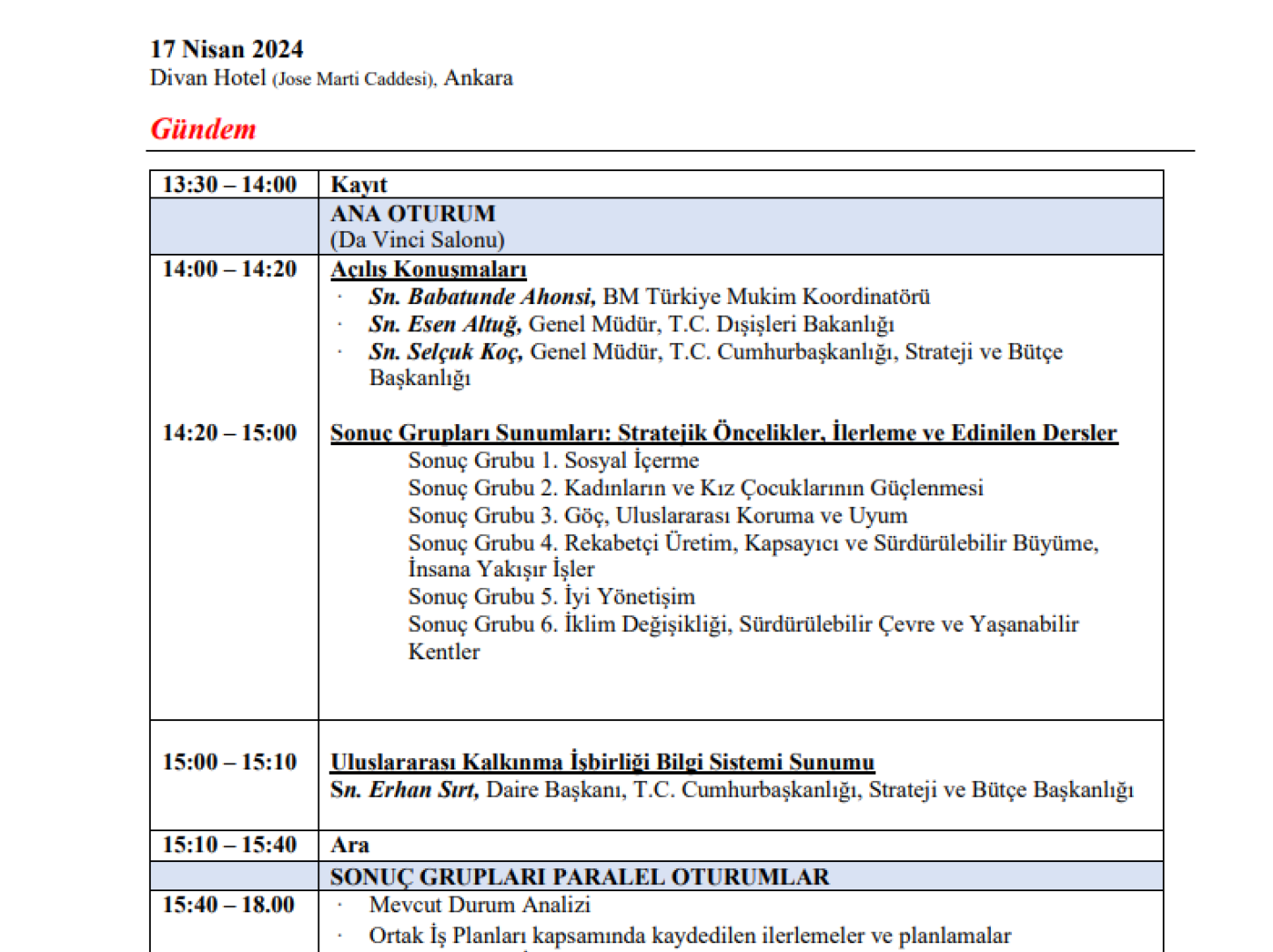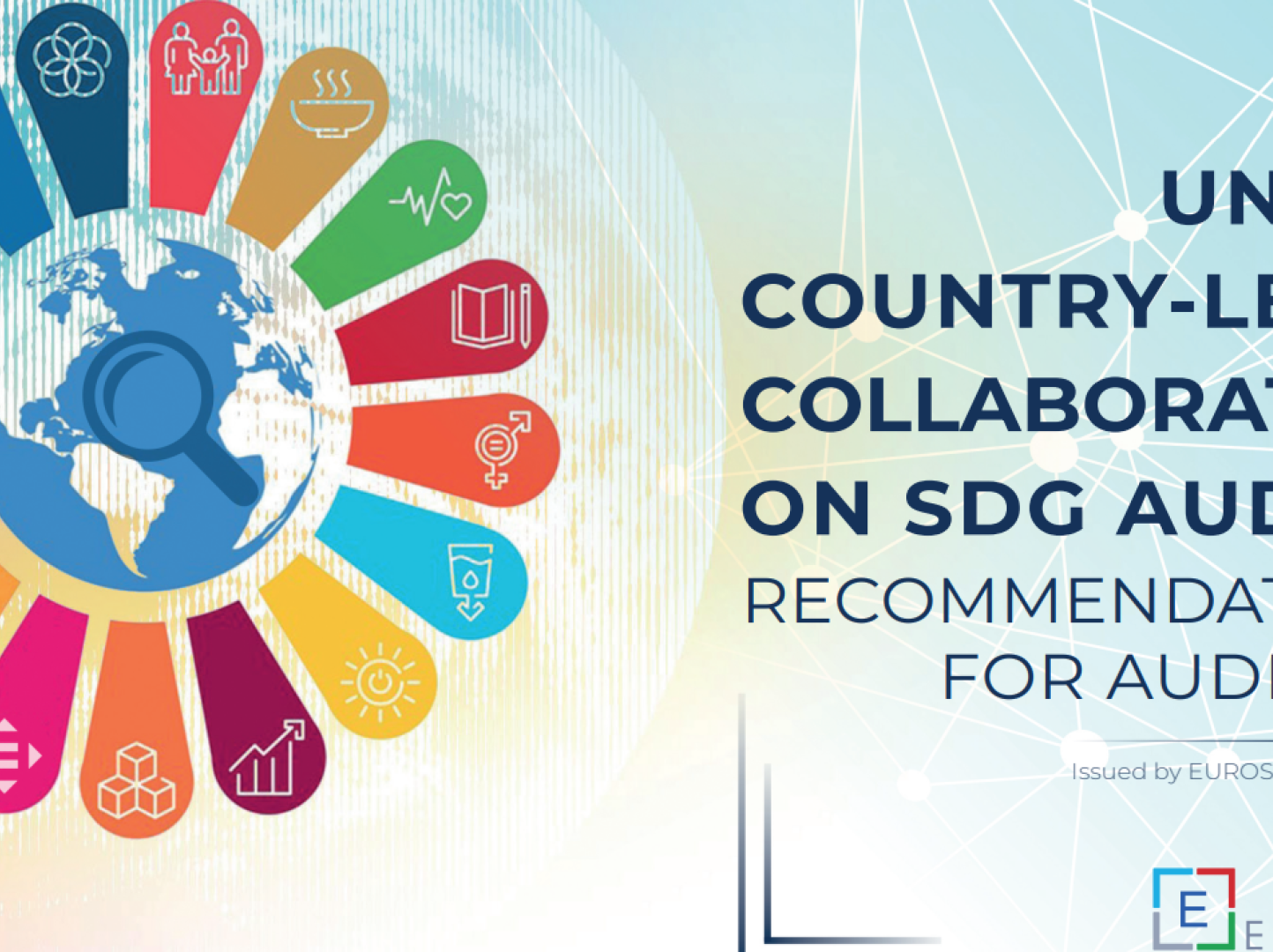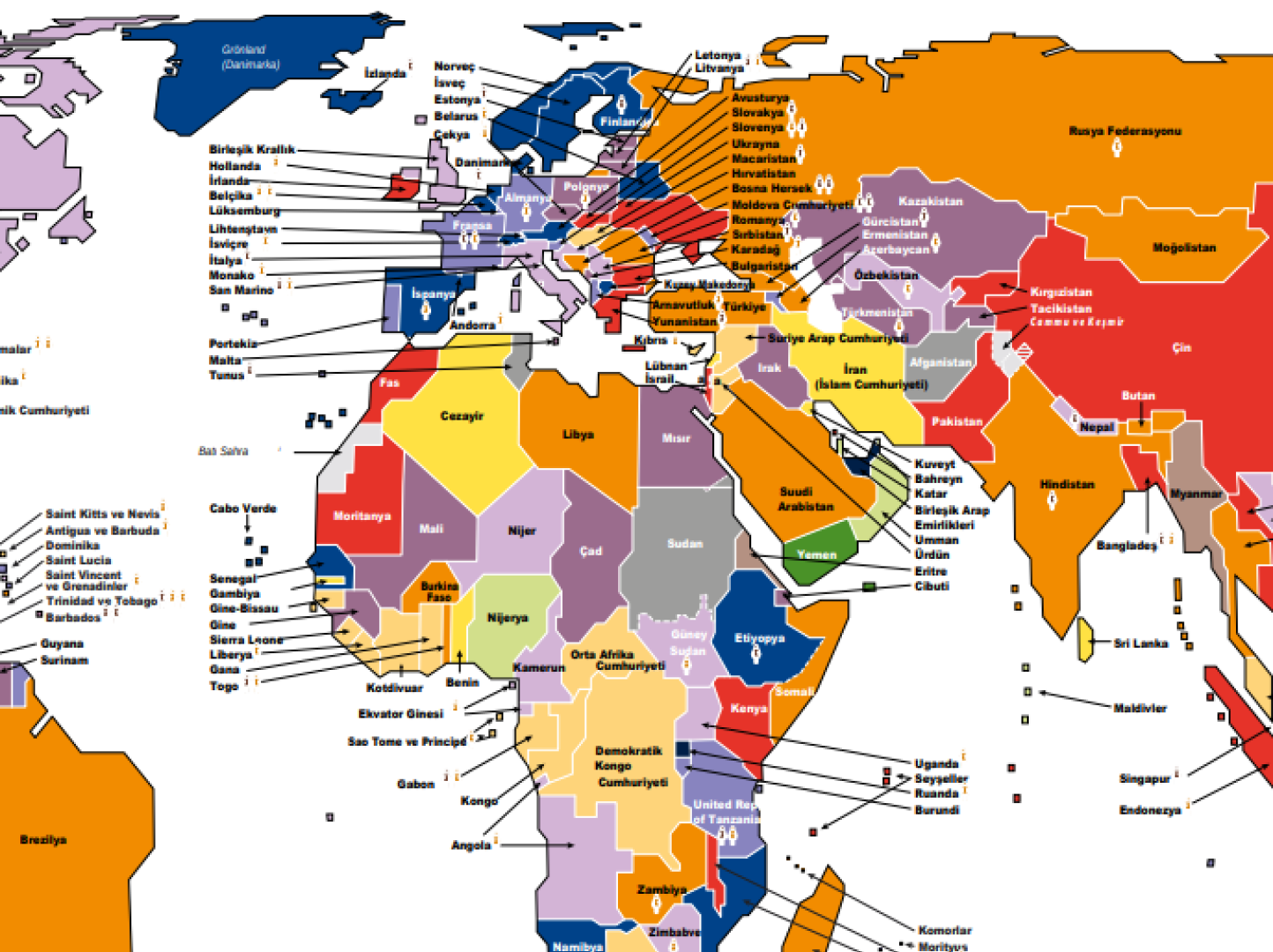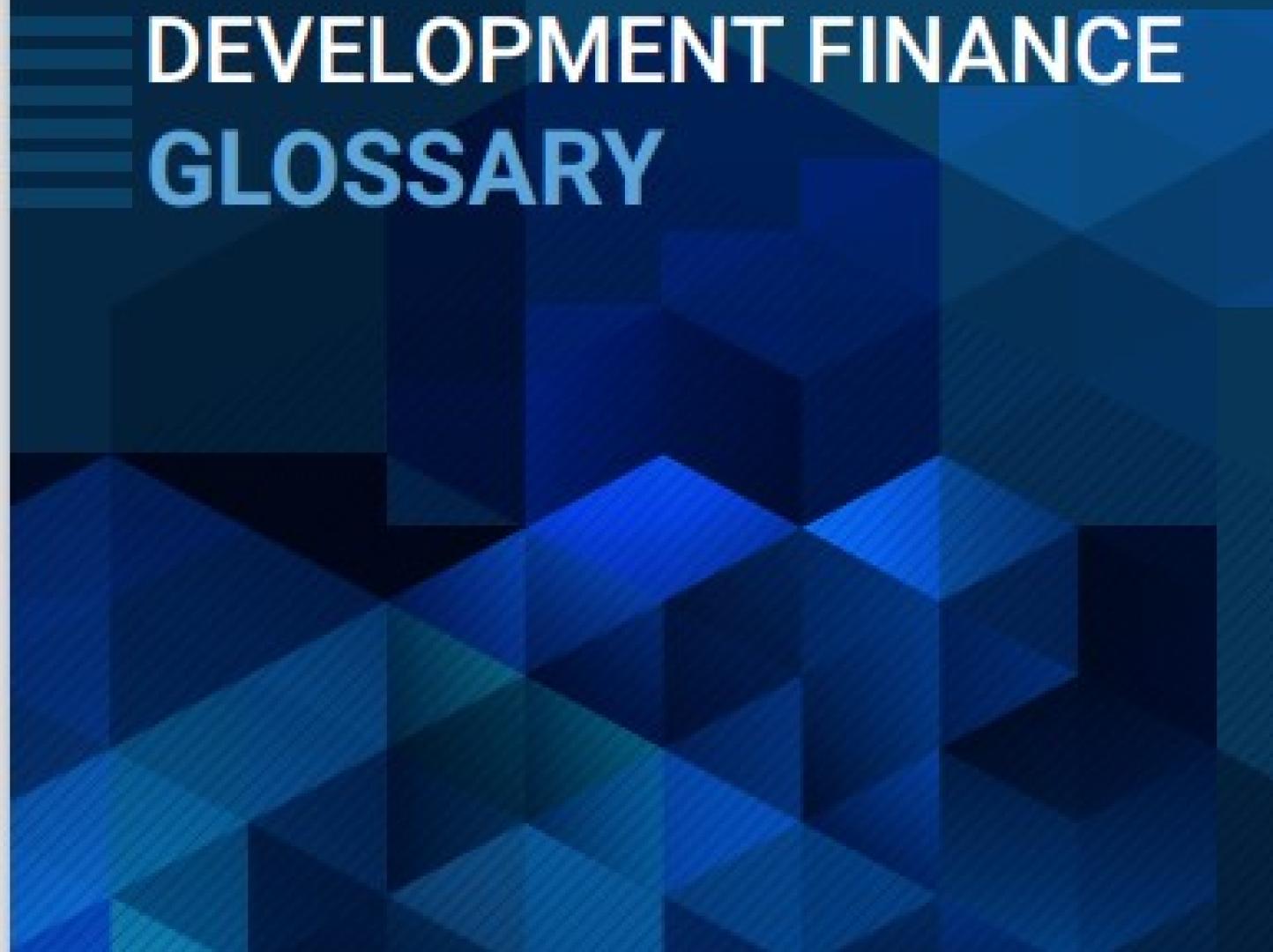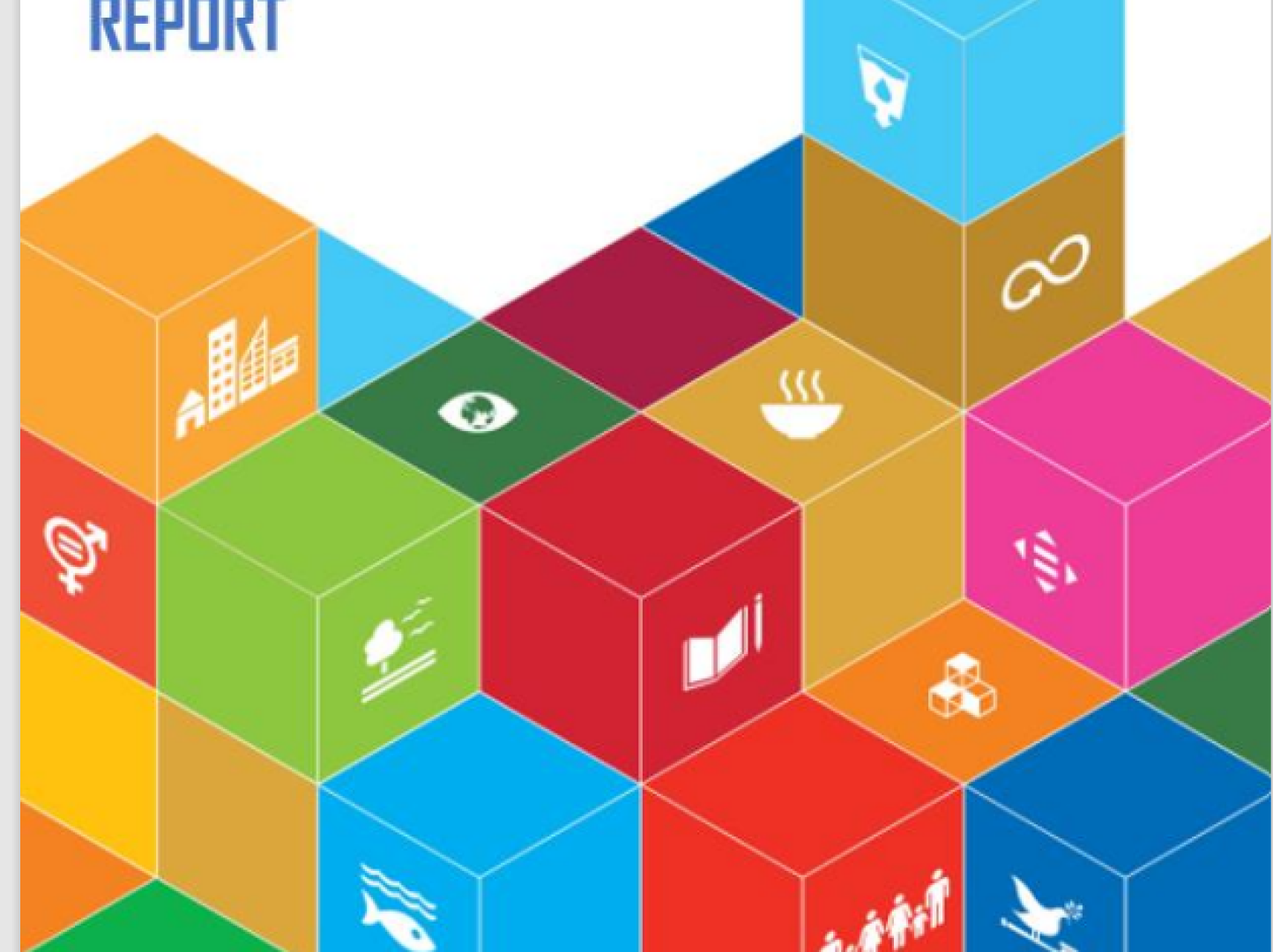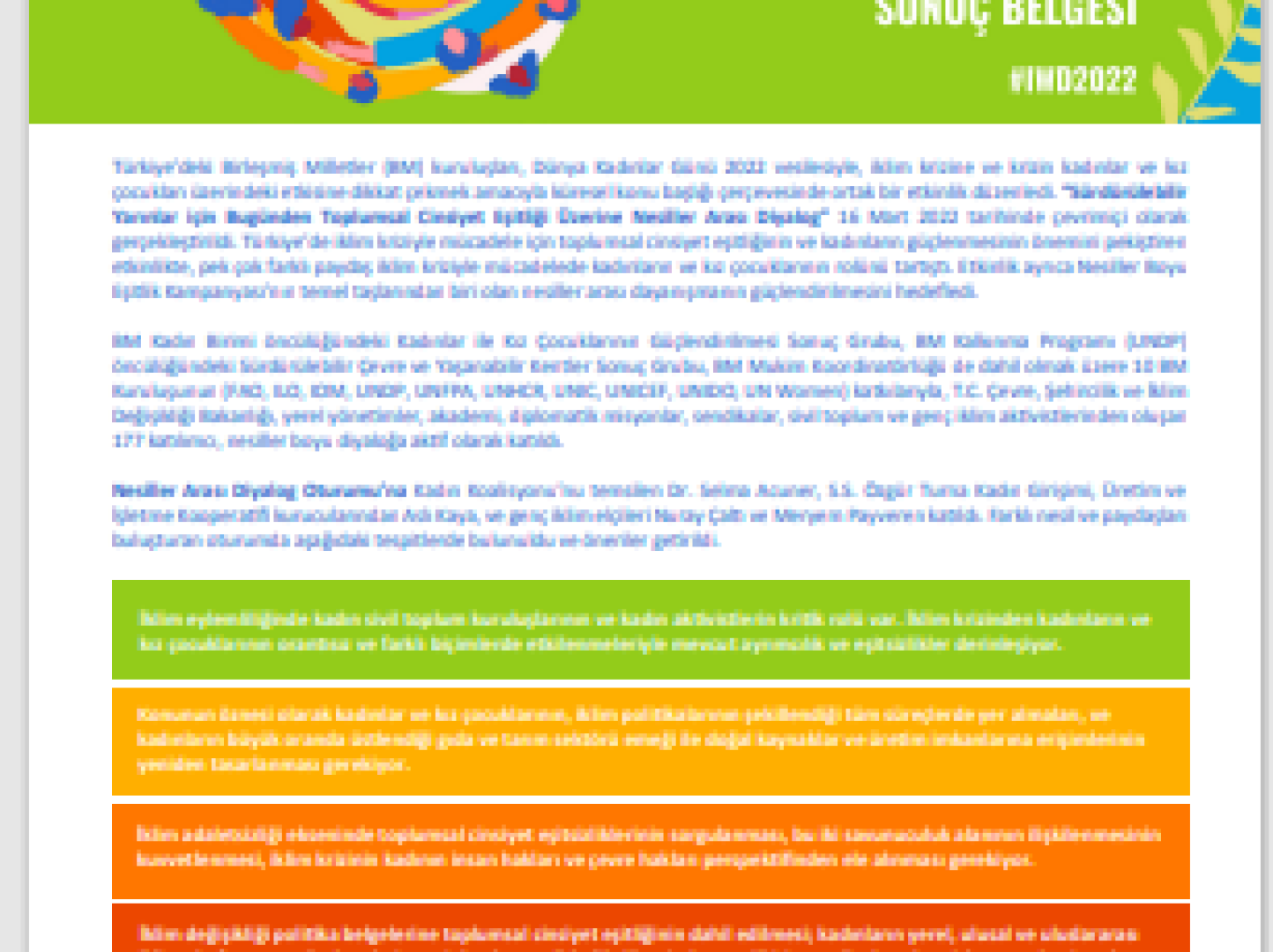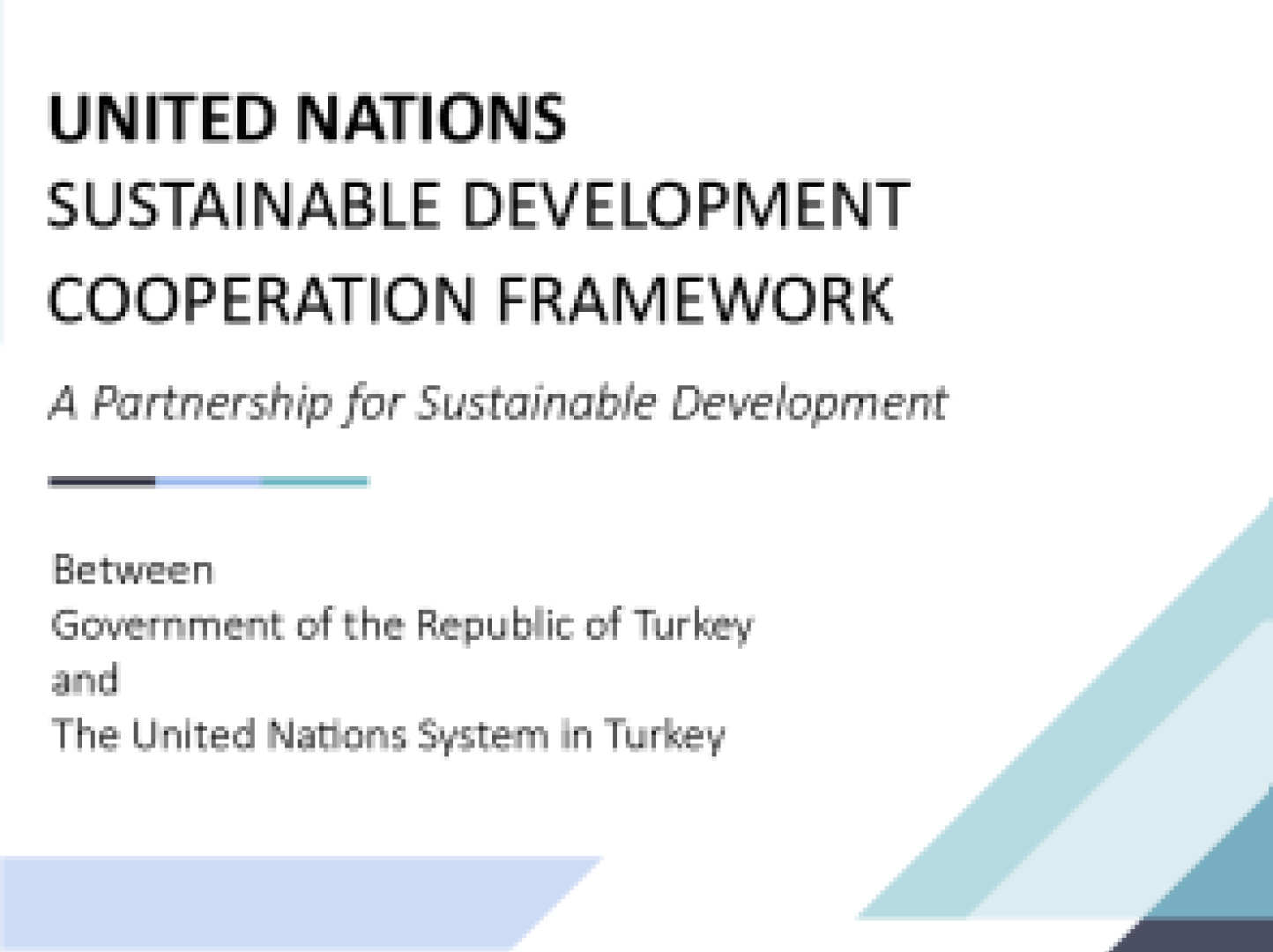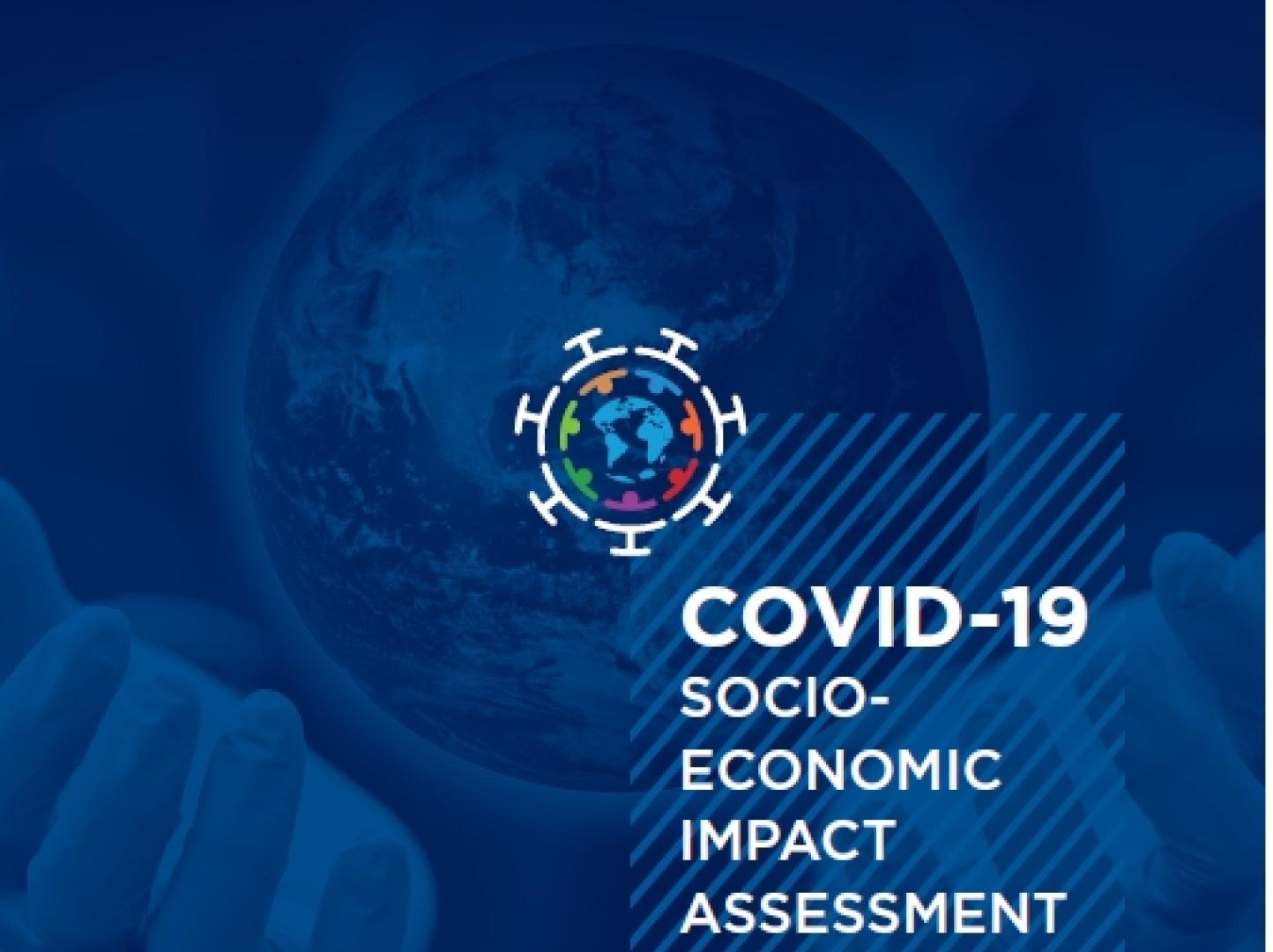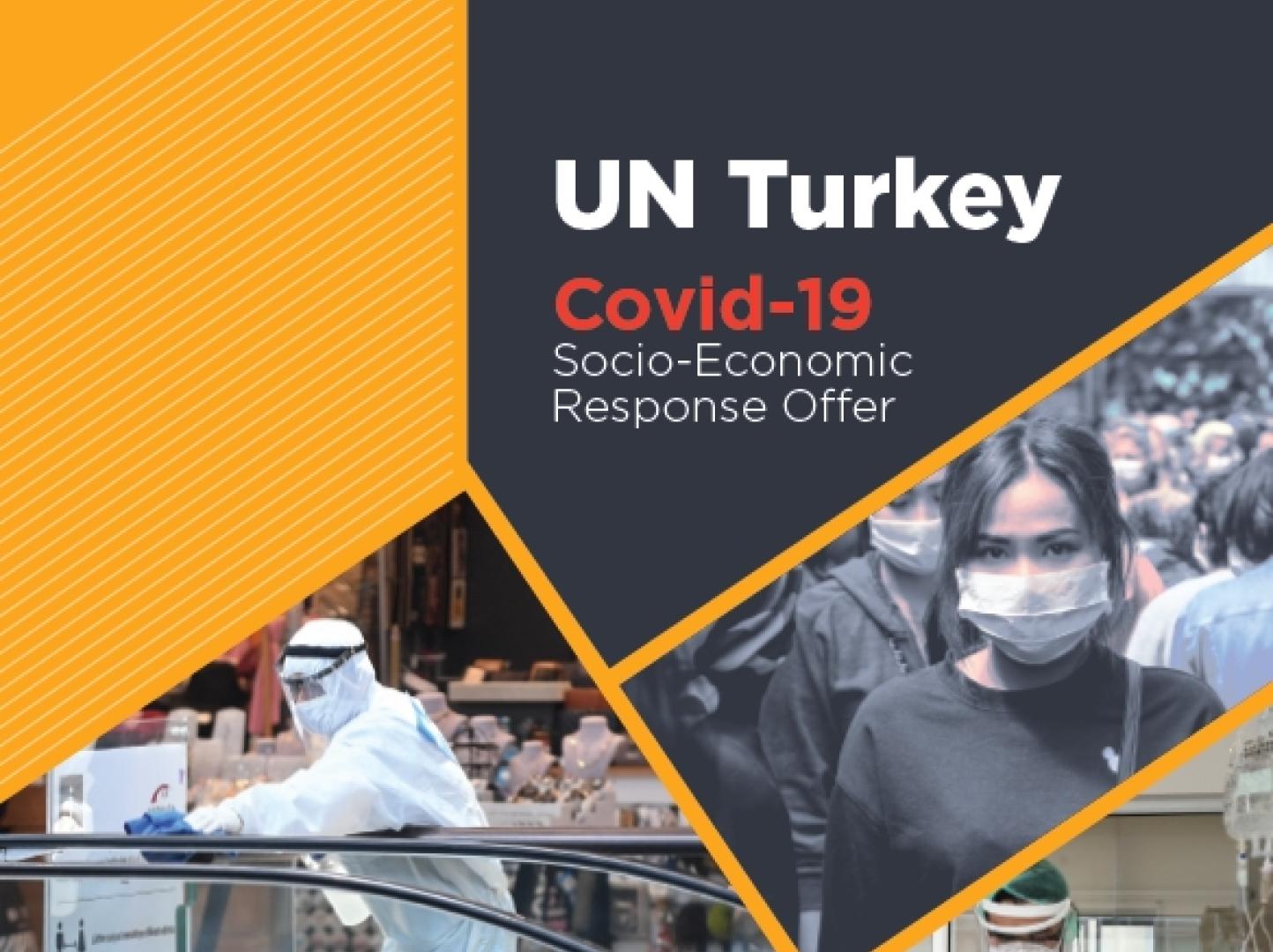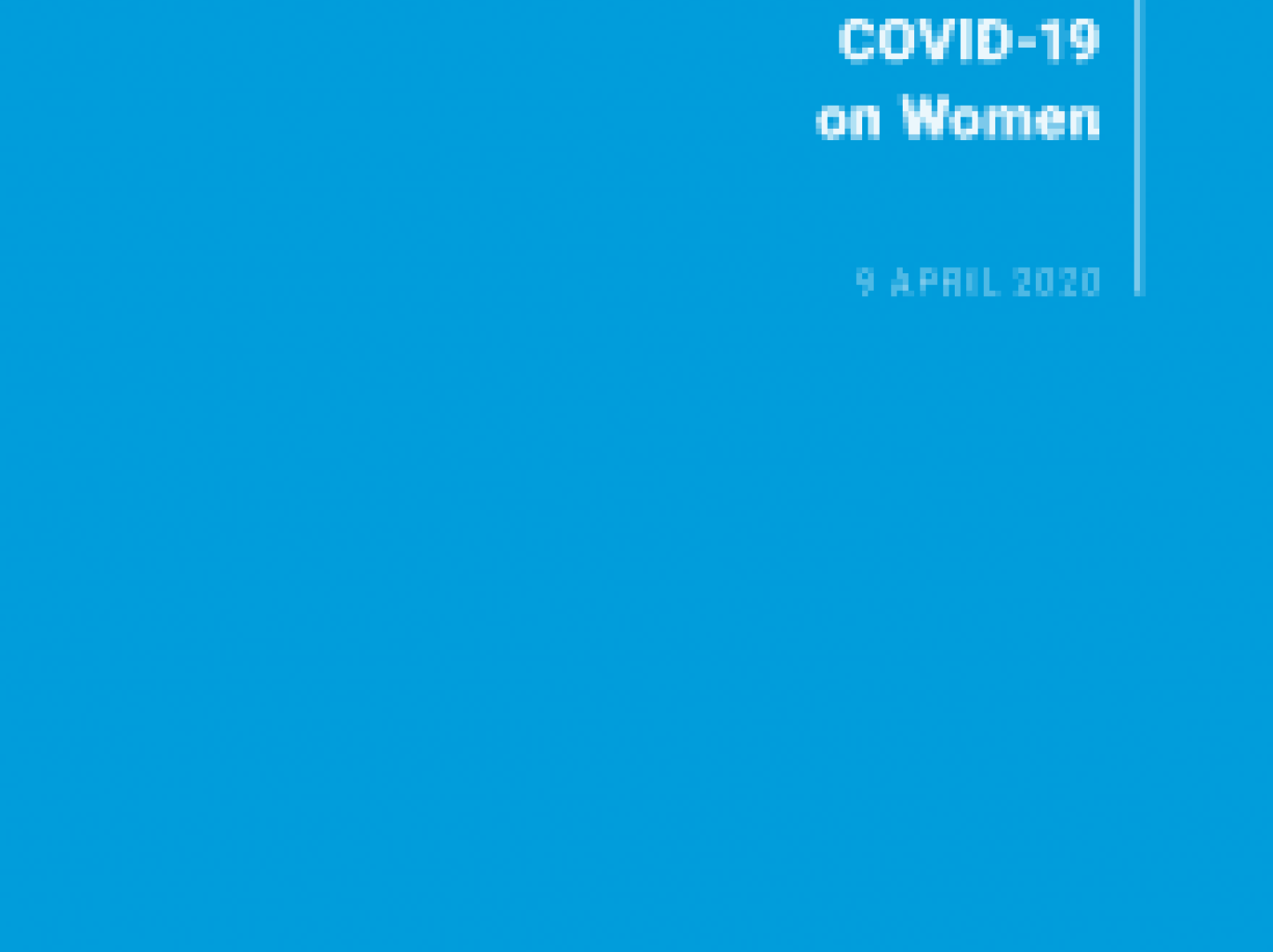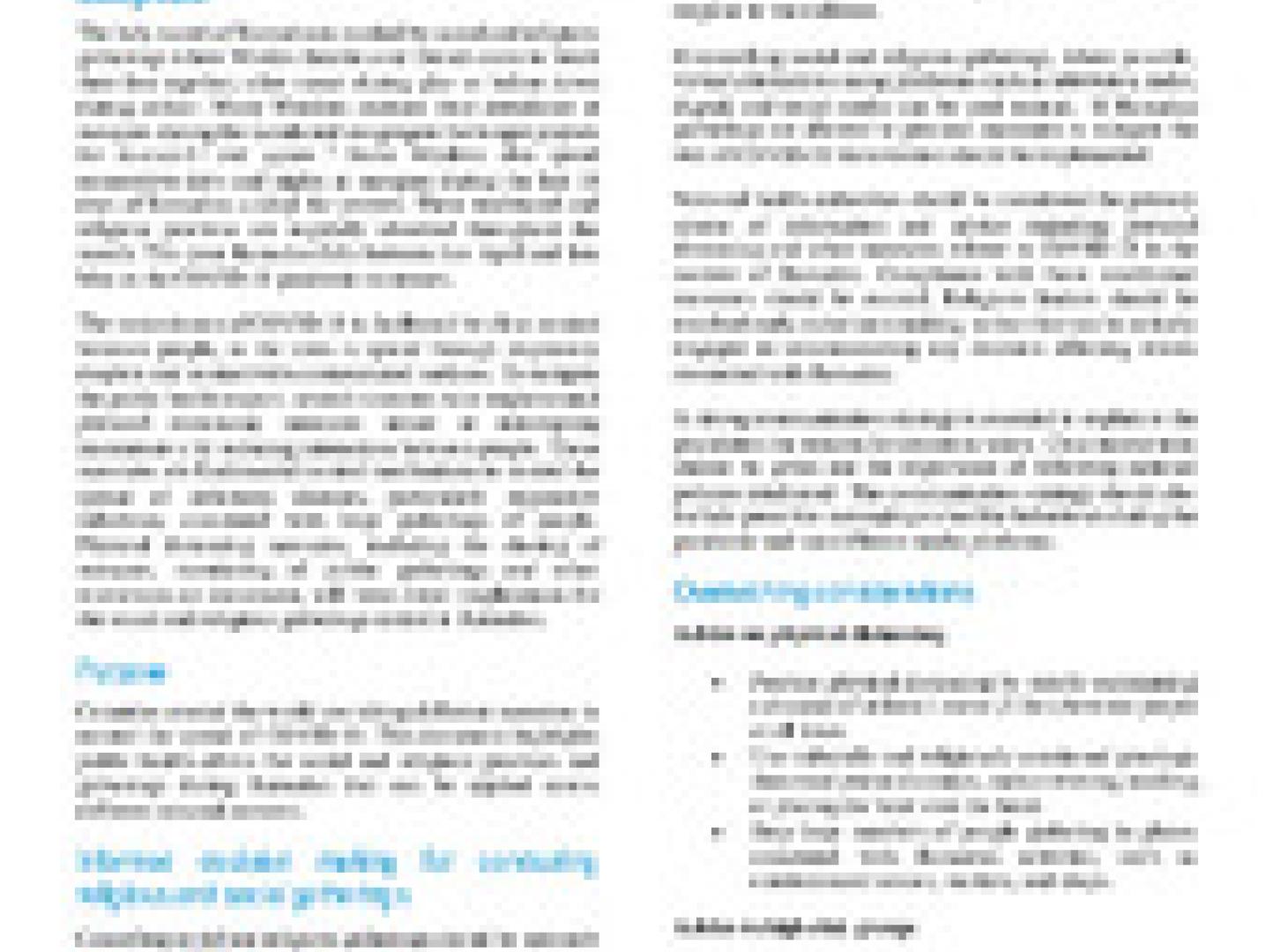Latest
Story
26 July 2024
The heat is on: We must rise to the challenge of rising temperatures, urges UN chief
Learn more
Story
24 July 2024
UN-backed refugee athletes named as Olympic flag bearers
Learn more
Story
17 July 2024
Gaza: Multiple strikes kill dozens near UN aid hub as thousands flee fighting
Learn more
Latest
The Sustainable Development Goals in Türkiye
The Sustainable Development Goals are a global call to action to end poverty, protect the earth’s environment and climate, and ensure that people everywhere can enjoy peace and prosperity. These are the goals the UN is working on in Türkiye:
Story
12 July 2024
Digital boom could well be a bust for the environment, warns UN trade agency
Or that the energy required for data mining for bitcoins reached 121 terawatts last year – more than the amount consumed by most small countries?These are just a few of the concerning findings of a new report into the digital economy by UN trade agency UNCTAD, which insists that the thriving sector’s negative environmental impact must be taken more seriously - and slowed by investment in renewables.“The rise of technologies such as artificial intelligence and cryptocurrency, cryptocurrency mining, has significantly increased energy consumption,” said UNCTAD chief Rebeca Grynspan.Power binge“For example, Bitcoin mining’s energy consumption rose 34-fold between 2015 and 2020, reaching around 121 terawatt hours…The energy consumption of Bitcoin mining is more than what Belgium or Finland consume per year,” the UNCTAD Secretary-General told journalists in Geneva.Today, some 5.4 billion people use the internet and the global digital economy is booming, with obvious upsides for many. In value terms alone, business e-commerce sales surged from $17 trillion in 2016 to $27 trillion in 2022 across 43 countries, Ms. Grynspan noted.“We talk a lot about how digital technologies can reduce paper use and improve energy efficiency and they can help cut greenhouse gas emissions in transport and construction, agriculture and energy sectors.“But the downside is not talked about as much,” she said, insisting that digitalization is “highly materialistic” in addition to requiring masses of carbon-rich electricity to boot.To counter this threat to the environment and in support of an equitable and environmentally responsible digital economy, UNCTAD’s Digital Economy Report 2024 offers policy suggestions covering precious minerals used to make electronic devices including mobile phones and other vital natural resources, such as water.Data centres’ thirst for energyAccording to UNCTAD, in 2022, global data centres consumed 460 terawatts hours, an equivalent of power used by 42 million homes in the United States in a year. This figure is expected to double by 2026.The UN agency also cites estimates that the digital sector is accountable for 1.5 to 3.2 per cent of global greenhouse emissions, similar to that of air transportation and shipping.Between 2018 and 2022, the electricity consumption of 13 major data centre operators more than doubled, highlighting the urgent need to address the energy and water footprints of these technologies.“Google disclosed that in 2022, total water consumption at its data centres and offices amounted to 5.6 billion gallons (about 21.2 million cubic metres). For the same year, Microsoft reported that its water consumption was 6.4 million cubic metres,” Ms. Grynspan said, adding that water consumption by such facilities had recently stoked tensions within local communities in several countries.Training for ChatGPT-3 alone, according to Microsoft, required an estimate of 700,000 litres of clean, fresh water, the UNCTAD chief also noted.Surge in e-commerce and e-wasteE-commerce has surged, with online shoppers growing from fewer than 100 million in 2000 to 2.3 billion in 2021, the report says. This increase has led to a 30 per cent rise in digital-related waste from 2010 to 2022, reaching 10.5 million tonnes globally.“Digital waste management remains inadequate. This is a huge concern given the pollution this generates and its impact on the environment,” the UNCTAD Secretary-General said.The report notes that developed countries generate 3.25 kg of digital waste per person, compared to less than 1 kg in developing countries and just 0.21 kg in least developed countries, which serves as yet another indicator of the unequal distribution of benefits that digitalization brings about.Critical mineralsThe World Bank, the report authors say, estimates that the demand for minerals required for digitalization like graphite, lithium, and cobalt could surge by 500 per cent to 2050.Developing countries are pivotal in the global supply chain for transition minerals and metals, which are highly concentrated in a few regions.For example, Africa’s vast mineral deposits, essential for the global shift to low-carbon and digital technologies, include cobalt, copper, and lithium, crucial for a sustainable energy future.The continent holds significant reserves 55 per cent of the world's cobalt, 47.65 per cent of manganese, 21.6 per cent of natural graphite, 5.9 per cent of copper, 5.6 per cent of nickel and 1 pe cent of lithium.Development opportunities“The increased demand for critical minerals presents an opportunity for resource-rich developing countries to add more value to extracted minerals, diversify their economy and enhance their development. But technology has to be transferred and has to be more efficient to be compatible with the environment and climate change objectives,” Secretary-General Grynspan shared.Amid current global crises, limited fiscal space, slow growth and high debt, developing countries should maximize this opportunity by domestic processing and manufacturing, the report authors suggest. This would help them to secure a larger share of the global digital economy, generate governments revenues, finance development, overcome commodity dependence, create jobs and raise living standards.Rising global demand for clean energy commodities is already driving foreign direct investment in Latin America, accounting for 23 per cent of the region’s greenfield project value over the past two years, the report finds.Factors of successUNCTAD suggests new business models and strong policies to make digital growth more sustainable. The UN trade and development experts’ straightforward recommendations to the world are:- use circular economy models, focusing on recycling, reusing, and recovering digital materials to cut down on waste and environmental damage;- optimize resources by create plans to use raw materials more efficiently and reduce overall use;- strengthen regulations, enforce tougher environmental standards and rules to lessen the ecological impact of digital technologies;- invest in renewable energy, support research and development of energy-efficient technologies and sustainable digital practices;- promote international cooperation, encourage countries to work together to ensure fair access to digital technologies and resources, and to tackle global digital waste and resource extraction issues.“The digital economy is central to global growth and development opportunities, so we need to implement the practices that will take us to a win-win space and not against our also important objectives of environmental sustainability and our commitments to climate change,” Rebeca Grynspan concluded.
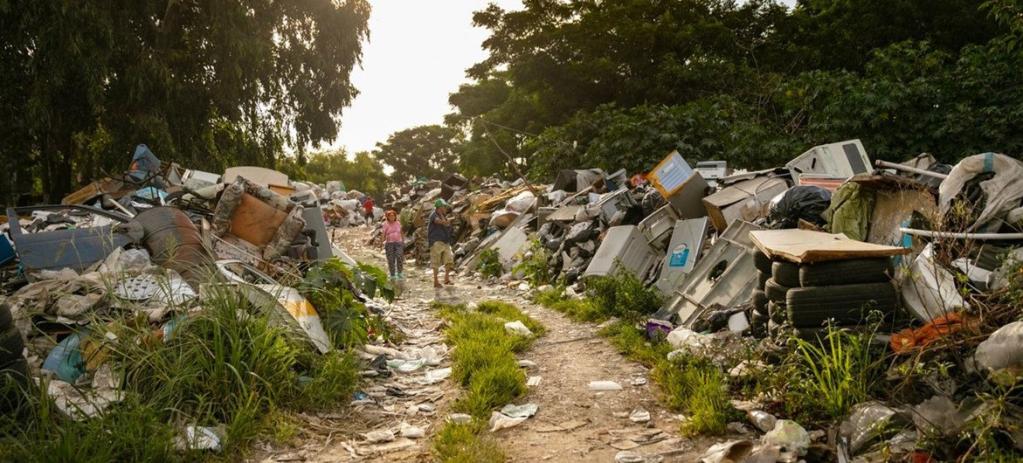
Story
26 July 2024
The heat is on: We must rise to the challenge of rising temperatures, urges UN chief
The UN chief on Thursday issued an urgent call to action to better protect billions around the world exposed to crippling effects of extreme heat, as global temperature rise continues unabated.The appeal comes against the backdrop of record temperatures and deadly heatwaves – from the United States to Africa’s Sahel and Europe to the Middle East – that have killed several hundred people this summer.During the Hajj, for instance, scorching heat claimed over 1,300 pilgrim lives.“Billions of people are facing an extreme heat epidemic – wilting under increasingly deadly heatwaves, with temperatures topping 50 degrees Celsius around the world. That is 122 degrees Fahrenheit – halfway to boiling,” Secretary-General António Guterres said at a press conference at UN Headquarters in New York.“The message is clear: the heat is on. Extreme heat is having an extreme impact on people and planet. The world must rise to the challenge of rising temperatures.”Protect the most vulnerableThe UN chief highlighted that while “crippling heat is everywhere”, it does not affect everyone equally.Those most at risk include the urban poor, pregnant women, children, older persons, those with disabilities, the sick, and the displaced, who often live in substandard housing without access to cooling.According to UN estimates, heat-related deaths for people over 65 years of age increased by about 85 per cent over the past two decades, while 25 per cent of all children today are exposed to frequent heatwaves and by 2050, that could rise to almost 100 per cent.“We must respond by massively increasing access to low-carbon cooling, expanding passive cooling – such as natural solutions and urban design and cleaning up cooling technologies while boosting their efficiency,” Mr. Guterres said, calling for scaling up of finances to protect communities from “climate chaos”.Protect workersMr. Guterres also underscored the need to step up protections for workers.Over 70 per cent of the global workforce, or 2.4 billion people, are at substantial risk of extreme heat, according to new report from the UN International Labour Organization (ILO).The situation is particularly dire in the Africa and Arab regions, where more than 90 per cent and 80 per cent of workers are exposed, respectively. In Asia and the Pacific – the world’s most populous region – that figure is three in four workers (75 per cent).In addition, heat stress at work is projected to cost the global economy $2.4 trillion by 2030, up from $280 billion in the mid-1990s. “We need measures to protect workers, grounded in human rights,” Mr. Guterres stressed. “And we must ensure that laws and regulations reflect the reality of extreme heat today – and are enforced.”Boost resilienceHe also underscored the need to strengthen resilience of economies and societies, citing impacts such as infrastructure damage, crop failures, and increased pressure on water supplies, health systems, and electricity grids.Cities are particularly vulnerable, experiencing heating at twice the global average rate.To address these challenges, Mr. Guterres called for comprehensive and tailored action plans based on scientific data are essential for countries, cities and sectors.“We need a concerted effort to heatproof economies, critical sectors and the built environment.”Fight the diseaseThe UN chief reiterated that it is crucial to recognize the myriad symptoms beyond extreme heat, such as hurricanes, floods, droughts, wildfires and rising sea levels.The core issue is the reliance on fossil fuels and climate inaction, he stated, stressing that governments, especially G20 nations, the private sector, cities and regions, must urgently adopt climate action plans to limit global temperature rise to 1.5°C.Alongside, countries must urgently phase-out fossil fuels and end new coal projects.“They must act as though our future depends on it – because it does.”
1 of 5

Story
24 July 2024
UN-backed refugee athletes named as Olympic flag bearers
The UN refugee agency (UNHCR) has thrown its full support behind Cindy Ngamba and Yahya Al Ghotany, the athletes chosen as flag bearers for the Olympic Games which start on Friday in Paris, who will be proudly bear the banner of the International Olympic Committee (IOC).On Tuesday, the IOC announced that boxer Ms. Ngamba and taekwondo athlete Mr. Al-Ghotany would be carrying the IOC flag on behalf of the committee’s Olympic team during the opening ceremony.“Boxer Cindy and taekwondoin Yahya will be carrying the [IOC] flag, not representing one nation, but over 120 million forcibly displaced people worldwide,” UNHCR said in an online statement.Representing refugeesMs. Ngamba was born in Cameroon and moved to the United Kingdom when she was 11 and Mr. Al-Ghotany left Syria with his family as a child following the outbreak of war.Both athletes received Refugee Athlete Scholarships funded by the IOC’s Olympic Solidarity initiative and have voiced that they are proud to represent refugees worldwide.“It’s an honour for me to represent this special team and carry the flag for the millions of us around the world,” Ms. Ngamba said. “My biggest hope is that at this year’s Olympic Games, we can make people stand up and pay attention. Show them what refugees are capable of - because we have some big ambitions.”Sharing similar sentiments, Mr. Al-Ghotany said: “At the Opening Ceremony, I will be thinking about everyone that has helped me on my journey – my friends, my family – but also the more than 100 million people around the world, who, just like me, have had to flee their homes. I represent all of them.”UNHCR said the participation of refugees in the Olympic Games demonstrates their resilience and excellence, serving as a symbol of hope and inclusion.Olympic awardAt the official IOC Session on Tuesday, it was also announced that UNHCR’s High Commissioner, Filippo Grandi, will become the third recipient of the Olympic Laurel – an award that was created to “honour outstanding individuals for their achievements in education, culture, development and peace through sport.”IOC President Thomas Bach said the UNHCR chief “has supported in an unprecedented way the crucial role sport can play for inclusion, belonging and physical and mental well-being of refugees.”He noted that following the announcement of the IOC Refugee Olympic Team for the 2016 Rio Games at the UN General Assembly, he sought Mr. Grandi’s support as the incoming UN High Commissioner for Refugees. He said that Mr. Grandi enthusiastically supported the initiative and later joined the Olympic Refuge Foundation's Board as Vice-Chair in 2017.“I am proud to receive this award on behalf of my colleagues at UNHCR, and for the millions of people around the world who have been forced to flee their homes,” Mr. Grandi said.The High Commissioner will be given the award during the opening ceremony of the Olympic Games on Friday.Let the Games begin…Headed to Paris for the Olympic Games on Friday is UN Secretary-General, António Guterres.In a video message welcoming people to the games released on Tuesday, the Secretary-General celebrated the power of sport and its ability to unite people and bring hope.His encouragement to people in the “spirit of the Olympic truce” is to build bridges and foster solidarity “and strive for the ultimate goal: peace for all.”During his trip to Paris, Mr. Guterres will meet with IOC President Bach and will hold bilateral meetings.
1 of 5

Story
17 July 2024
Gaza: Multiple strikes kill dozens near UN aid hub as thousands flee fighting
Multiple strikes have killed dozens of people in central Gaza, landing just 100 metres from a humanitarian hub, UN agencies said on Tuesday, as thousands continue to face displacement amid the ongoing war.Reports of strikes landing near an aid centre in Deir Al-Balah came from the UN humanitarian office, OCHA, said UN Spokesperson Stéphane Dujarric, who provided updates on the situation in the besieged enclave.“The [aid] operations are continuing,” he told journalists at UN Headquarters. “But, if there’s a strike 100 metres away from the place where you work, it just adds to an already overwhelming level of stress for our colleagues not to mention the impact it has on civilians who are routinely killed in these strikes.”Displacement surge from northern GazaGazans also continued to face numerous evacuation orders from the Israeli military nine months into the conflict, which was sparked by Hamas-led terror attacks in multiple Israeli locations that left some 1,200 dead and more than 250 taken hostage.Families joined the exodus from Gaza City to Deir Al-Balah, with more than 1,000 people crossing over the past week, mainly on donkey carts, motorcycles or by car, the UN Spokesperson said.“Many of those people have told us that they have been displaced dozens of times,” Mr. Dujarric added.As a result, UN teams have been deployed along the route to provide water, hot meals, food and health services to those fleeing Gaza City, he noted.Chronic fuel shortagesIn terms of fuel needed to operate humanitarian services, he said shortages persist.“The lack of fuel continues to hinder the work of basic service providers, including hospitals, ambulances, bakeries and aid trucks,” he said. “Over the past two weeks, we’ve been able to collect over 80,000 litres of fuel per day on average.”While that’s an improvement from the previous daily average of 40,000 litres, Mr. Dujarric said it falls short of the 400,000 litres needed every day.He said Israeli authorities are still not allowing the allocation of fuel to key local humanitarian responders, preventing them from transferring supplies within Gaza.For its part, the UN took possession on Monday of 10 flatbed trucks to deliver aid, Mr. Dujarric said.Clinic offers glimmers of hopeDespite enormous challenges, including shortages of medical supplies and medicines and the destruction of many clinics due to the war, the UN agency for Palestine refugees, UNRWA, continues to provide vital health services, working tirelessly to meet the growing health needs of the displaced.For UN News, Ziad Taleb visited the agency’s clinic in Deir Al-Balah and met some of the displaced there, highlighting the immense suffering they are going through.Amid the spread of infectious diseases and difficult living conditions, the UNRWA clinic remains a lifeline for many, providing free treatment and much-needed medical support.Patients wait inside an UNRWA clinic in Deir Al-Balah in central Gaza. UN News Patients wait inside an UNRWA clinic in Deir Al-Balah in central Gaza.Situation ‘deteriorating dramatically’Displaced people in the Gaza Strip are living in extremely difficult living conditions, Inas Hamdan, UNRWA’s public information director, said.“Things are deteriorating dramatically with each passing day because this war has been going on for more than nine months,” she said. “The health situation is also very tragic because of the spread of diseases among the displaced, especially children.”That includes skin diseases and viral hepatitis, in addition to gastrointestinal diseases and diarrhoea.“There are a number of factors that led to this, the first of which is the lack of medical supplies and medicines needed to treat such cases,” she explained. “The most important thing is the living conditions that lack the most basic necessities of life inside tents or shelters. Most of these displaced people live in tents or shelters.”Closed border crossings are making it increasingly difficult to bring in aid, including sufficient quantities of water alongside medical and hygiene supplies.Free servicesThe majority of Gaza’s population of 2.3 million relies heavily on UNRWA clinics. Ashraf Abu Maghsib, a displaced person from eastern Deir Al-Balah, explained that he comes to UNRWA clinics because they provide free medicine, unlike pharmacies and other clinics that sell it at high prices.Hiba Hassanein, who has been displaced from Beit Hanoun in northern Gaza, said “we chose the agency’s clinic because it provides free treatment to all citizens. We suffer from skin diseases, hepatitis and poor hygiene.”Others echoed those concerns. Enas Othman, a displaced person from Jabalia in northern Gaza, said some of the most dangerous diseases are skin-related, pointing to the widespread presence of mosquitoes and the scarcity of potable water among displaced people. Indeed, the salty water causes many diseases, she added.“We currently live in the Al Mawasi area in Khan Younis, which is a place full of insects that harm people and cause the spread of diseases,” she said.Lifeline for displaced peopleMore than 700 staff work in the UNRWA health sector, spread across different medical points between the displaced and the main clinics, where they have been providing health services, continuously, to the displaced for more than 10 months.However, many UNRWA clinics in different areas of the Gaza Strip were put out of service after being destroyed by the war.Still, UNRWA clinics continue to provide a lifeline for displaced people in Gaza amid medical shortages as the war rages on.
1 of 5
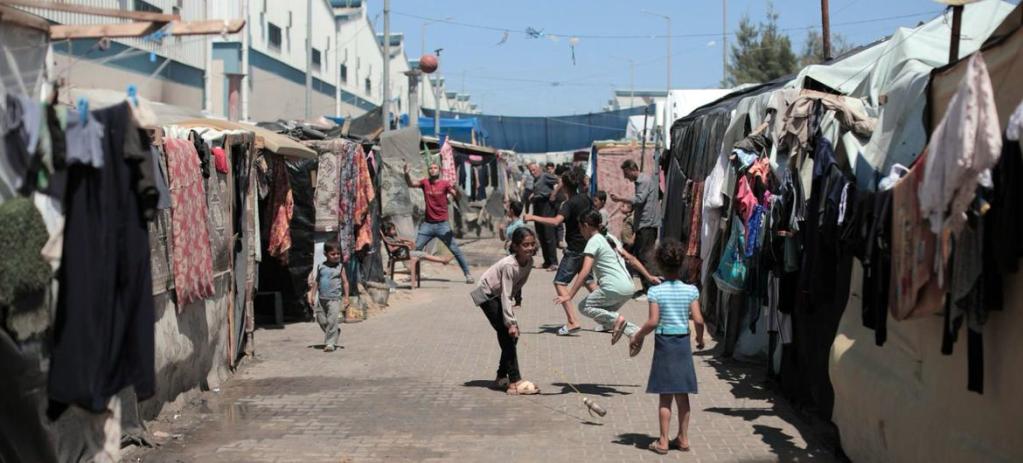
Story
16 July 2024
UN deputy chief calls for major arms spending cuts and urgent action to save SDGs
The UN Deputy Secretary-General on Monday urged global leaders to redirect resources from warfare to peace and sustainable development initiatives.Speaking on behalf of Secretary-General António Guterres, Amina Mohammed called for immediate and decisive action to salvage the faltering Sustainable Development Goals (SDGs).“Conflicts in Gaza, Sudan, Ukraine, and beyond are causing a devastating loss of life and diverting political attention and scarce resources from the urgent work of ending poverty and averting climate catastrophe,” she said at the ministerial meeting of the High-Level Political Forum (HLPF) on sustainable development.She emphasized the need to slash military budgets and instead channel funds towards peace and development.Deputy Secretary-General Amina Mohammed addressing the ministerial opening of the High-level Political Forum.Critical stage of SDGsHighlighting the critical state of the SDGs, Ms. Mohammed noted that only 17 percent of the targets are on track as the 2030 deadline approaches.“Future generations deserve more than 17 percent of a sustainable future,” she emphasized, outlining a four-pronged strategy for urgent acceleration in a bid to meet the 2030 deadline for the Goals.The first step, she stressed, is to establish peace, underscoring that political and financial resources should be redirected from conflicts to development efforts.She also emphasized the importance of advancing green and digital transition, urging nations to enhance their climate action plans by 2025, aligning them with the 1.5-degree Celsius limit in line wit the Paris Agreement and invest in expanding digital connectivity.Invest in peaceAddressing the financial challenges impeding SDG progress, Ms. Mohammed pointed out the growing financing gap and destabilizing financial conditions in many developing countries. She acknowledged ongoing reform of multilateral development banks and the recycling of special drawing rights but called for more robust measures. “We must go further and faster to deliver an SDG Stimulus,” she urged, calling for increased lending capacity, expanded access to contingency financing, and comprehensive debt solutions.Keep the promiseIn conclusion, Ms. Mohammed reiterated the SDGs’ promise to “leave no one behind”.She emphasized the need to prioritize vulnerable populations, uphold the rights of persons with disabilities and combat gender inequality. “Achieving this agenda means placing vulnerable people and groups at the forefront of national development plans, policies and budgets,” she said.
1 of 5
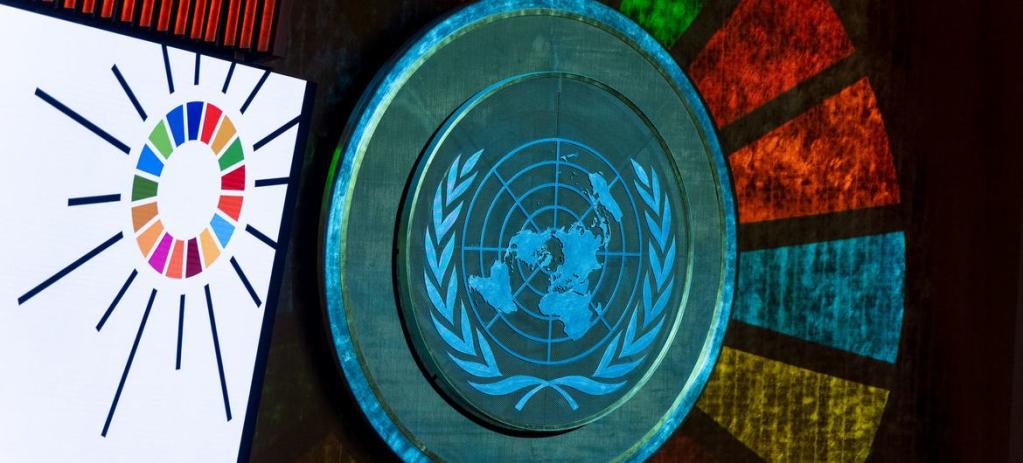
Story
11 July 2024
Guterres: May the memory of Srebrenica strengthen our resolve to build a world free from the scourge of genocide
UN Secretary General António Guterres, released a message to mark the 11 July International Day of Reflection and Commemoration of the 1995 Genocide in Srebrenica.Guterres said, “Twenty-nine years ago, the United Nations and the world failed the people of Srebrenica. Over 8,000 Bosnian Muslims were systematically murdered, and their remains buried in mass graves. This was the worst atrocity in Europe since the Second World War”.The message reads as follows:Today, we honour the memory of the victims and stand in solidarity with the survivors. We also reaffirm our support for the families of those killed, in their relentless quest for truth and justice. We must combat denial and revisionism and pursue efforts to identify every victim and bring every perpetrator to account. And we commit to continue learning from this unspeakable tragedy and sharing the stories and lessons of Srebrenica. The genocide in Srebrenica stands as a harrowing testament to the devastating consequences of inaction in the face of hatred. We must fight against division and intolerance, stand up for human rights, and promote mutual understanding and reconciliation.May the memory of Srebrenica strengthen our resolve to build a world free from the scourge of genocide – a world where justice and peace prevail, where “never again” is a solemn promise fulfilled for all humanity.
1 of 5
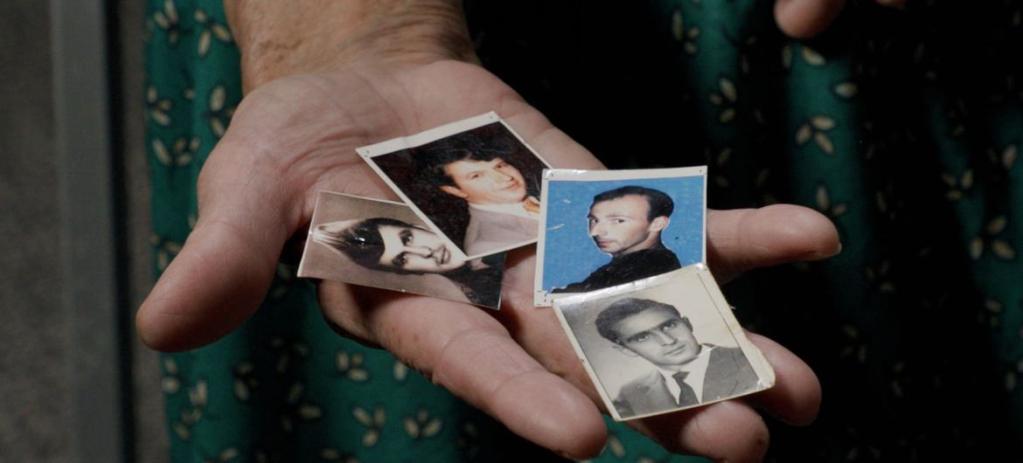
Press Release
16 May 2024
UN Women Executive Director Sima Bahous is visiting Türkiye
Sima Bahous, the Under-Secretary-General of the United Nations and the Executive Director of UN Women, is scheduled to visit Türkiye for a four-days mission focused on gender equality and women’s empowerment efforts. During her visit to Türkiye, UN Women Executive Director Sima Bahous will engage in discussions with the officials from both public and private sectors, women-led civil society organizations and United Nations representatives. Bahous will also hold strategic meetings with stakeholders of UN Women Türkiye to discuss and further galvanize support for gender equality and women’s empowerment in Türkiye. During her visit to Türkiye, Bahous will also engage with women survivors in the provinces affected by the February 6, 2023 earthquakes. The Executive Director will meet with UN Women partners and women affected by the earthquakes, emphasizing the importance of women’s leadership in the response to the disaster and the need for continuous collaborative effort to ensure gender responsive recovery.
1 of 5
Press Release
14 March 2024
Türkiye ranks 45th of 193 countries in human development, new UNDP report says
Ankara, 13 March 2024 - Türkiye ranks 45th among 193 countries in this year’s edition of the Human Development Index (HDI) released today by the United Nations Development Programme (UNDP). Based on 2022 data, Türkiye lands in the “very high human development” category—the highest of four—for the fourth year in a row. But while the ranking offers good news for the most prosperous countries, it shows a worrying divergence in human development outcomes, with poorer countries failing to regain ground lost to the pandemic. Globally, the HDI hit a record high, rebounding from two years of pandemic declines. The average conceals widening inequality, however, as half of the world’s poorest countries failed to regain their pre-pandemic level. “Like most of the world’s wealthier countries, Türkiye has bounced back vigorously from pandemic setbacks,” said UNDP Türkiye Resident Representative Louisa Vinton. “But this encouraging progress is overshadowed by resurgent inequality that threatens millions of people around the world with the risk of being left behind.” UNDP’s HDI was created 34 years ago to provide a fuller measure of human wellbeing than that afforded by financially focused indicators such as gross domestic product (GDP). It combines three key measures: a long and healthy life, access to knowledge and a decent standard of living. Türkiye has shown remarkable improvement over three decades: the country’s HDI value rose from 0.598 in 1990 to 0.855 in 2022, a 43 percent increase. Türkiye has seen advances across all three dimensions of the HDI: life expectancy at birth increased by 10.8 years between 1990 and 2022; mean years of schooling increased by 4.4 years; and expected years of schooling increased by 10.8 years. And the country’s gross national income per capita surged by 154.3 percent in the same period. But Türkiye’s ranking slips when the HDI is adjusted for inequality. Overall men enjoy a higher level of human development than women, so when adjusted for gender equality, Türkiye’s ranking falls to 66th of 166 countries.The new ranking is based on national statistics and data reported in 2022, so it does not reflect the impact of the February 2023 earthquakes. Despite the huge loss of life and the vast scale of the damage caused by the disaster – a government assessment prepared with UNDP’s support estimated total damages and losses at US$103.6 billion, or 9 percent of forecast GDP for 2023 – the earthquakes are not expected to affect the country’s HDI ranking. The HDI rankings are a core part of the Human Development Report (HDR) published each year by UNDP. The 2023/24 edition, entitled Breaking the Gridlock: Reimagining Cooperation in a Polarized World, warns that uneven development progress is leaving the poorest behind, exacerbating inequality and stoking polarization on a global scale. The report finds that international collective action is hindered by an emerging “democracy paradox”: while nine in ten people worldwide endorse democracy, over half of global survey respondents express support for leaders that may undermine it by bypassing fundamental rules of the democratic process. Half of people surveyed worldwide report having no or limited control over their lives, and over two-thirds believe they have little influence on their government’s decisions. Such feelings of powerlessness combined with growing political polarization are causing some countries to turn inward precisely when renewed cooperation is vital, the report concludes. Pronouncing “deglobalization” an irresponsible illusion, the report recommends collective action to create “a new generation of global public goods” to provide solutions to cross-border challenges such as climate change. “In a world marked by increasing polarization and division, neglecting to invest in each other poses a serious threat to our wellbeing and security,” said UNDP Administrator Achim Steiner. “Protectionist approaches cannot address the complex, interconnected challenges we face, including pandemic prevention, climate change, and digital regulation. Our problems are intertwined, requiring equally interconnected solutions.”To learn more about the 2023/24 Human Development Report and UNDP’s analysis on navigating the new uncertainty complex, visit: https://www.undp.org/turkiye/publications/human-development-report-2023
1 of 5
Press Release
05 March 2024
United Nations (UN) agencies in Türkiye will mark International Women's Day in Ankara with a collaborative event titled "Investing in Women for Progress"
Scheduled for 6 March 2024 at 9:15 am, the event will be held at the J.W. Marriott Ankara Hotel.The program features the Minister of Family and Social Services, Ms. Mahinur Özdemir Göktaş, as the keynote speaker.This year's International Women's Day theme, "Investing in Women: Accelerate Progress," highlights the crucial role of women in propelling social, economic, and cultural advancement worldwide.Members of the press are invited to cover the event.***Please inform unic-ankara@un.org about your participation in the event.
1 of 5
Press Release
22 February 2024
Applications invited for journalism fellowships at the United Nations Headquarters
New York, NY. The Dag Hammarskjöld Fund for Journalists is now accepting applications from professional journalists for its 2024 fellowship program. The application deadline is April 5, 2024. The fellowships are available to radio, television, print and web journalists, age 25 to 35, who are interested in coming to New York to report on international affairs during the 79th session of the United Nations General Assembly during the opening 10 weeks. Travel and living accommodations in New York, as well as a per diem allowance, are provided. The fellowships are open to journalists who are native to the mainly developing countries in Africa, Asia, Latin America and the Caribbean, and Oceania and are currently working for media organizations. Applicants must demonstrate an interest in and commitment to international affairs and to conveying a better understanding of the U.N. to their readers and audiences. They must also have approval from their media organizations to spend up to three months in New York to report from the U.N. The program is not intended to provide basic skills training to journalists; all fellowship recipients must be media professionals.Journalists are selected each year after a review of all applications and given the incomparable opportunity to observe international diplomatic deliberations and to gain a broader perspective and understanding of matters of global concern. Many past fellowship recipients have achieved prominence in their professions and countries. Fellowship eligibility criteria and documentation requirements, as well as the fellowship application, can be found on the Fund’s web site at www.unjournalismfellowship.org. Questions about the program, eligibility and the application process can be directed by email to fellowship2024@unjournalismfellowship.org.Although the Fund is based at the U.N., it does not receive financial support from the world organization. The Fund was established as an independent entity by U.N. journalists over 60 years ago as a living memorial to the legacy of Secretary-General Dag Hammarskjöld. It continues to be operated by U.N. journalists and relies on financial support from U.N. Missions, foundations, organizations and individuals.
1 of 5
Press Release
05 December 2023
First-ever Assistant Secretary-General for Youth Affairs takes the helm at newly established United Nations Youth Office
Following the recommendation in the Secretary-General's groundbreaking report "Our Common Agenda", Member States unanimously agreed to the establishment of the UN Youth Office as a dedicated entity for youth affairs within the Secretariat, building upon more than a decade of work led by the Secretary-General's Envoys on Youth, and marking a pivotal breakthrough for the revitalization and expansion of the UN's engagement with and for youth.
Over many decades, the UN has made significant strides in advancing the rights and opportunities of young people. Youth empowerment is not just a matter of equity; it holds immense social and economic potential. Empowering young people drives vibrant societies, fosters innovation, and accelerates progress.
Yet, disparities affecting youth persist in every corner of the world. Young people face challenges such as limited access to education, employment and health services, and their voices often go unheard in decision-making processes.
"We are establishing a United Nations Youth Office in the UN Secretariat — building on nearly a decade of important work done by the two Envoys on Youth — to advance efforts towards stronger advocacy, coordination, and accountability for and with young people," said UN Secretary-General António Guterres.
The establishment of the UN Youth Office marks a pivotal breakthrough for the revitalization and expansion of the UN's engagement with and for youth, with a focus on addressing these challenges and opportunities.
Guided by the UN’s systemwide youth strategy, Youth2030, the UN Youth Office will lead efforts to enhance collaboration, coordination and accountability on youth affairs, ensuring that the United Nations works effectively and inclusively with young people in all their diversity.
Through the fostering of multi-stakeholder intergenerational solidarity, the UN Youth Office's mission focuses on strengthening meaningful, inclusive and effective youth engagement across all pillars of the UN’s work, including sustainable development, human rights, and peace and security.
On 28 October 2023, the Secretary-General announced Dr. Felipe Paullier as the first Assistant Secretary-General for Youth Affairs. Dr. Paullier officially assumes his mandate today, becoming the youngest ever senior appointment in the history of the UN.
“With the establishment of the UN Youth Office, we mark the start of a new era for the UN system,” said Dr. Felipe Paullier, Assistant Secretary-General for Youth Affairs. “As I assume my mandate, I am eager to begin meeting with young people from all corners of the world, both virtually and on-the-ground in their communities. Learning from young people’s experiences over the coming months will be critical in helping me to shape an action plan for the new Youth Office that ensures no young person is left behind.”
Dr. Paullier was previously the Director General of the National Youth Institute of Uruguay, a position he held since 2020. Prior to that, he served in various political management positions, including as Deputy Mayor in the Municipality of the CH jurisdiction of Montevideo (2015-2020) and Alternate Counsellor in the Montevideo Departmental Legislative Court (2010-2015). Dr. Paullier is a Medical Doctor specialized in Pediatrics by training.
###
About the UN Youth Office
As an unwavering champion and advocate for young people everywhere, the UN Youth Office envisions a world in which all young people are meaningfully engaged in the decisions that affect them most. We lead system-wide collaboration, coordination and accountability on youth affairs, harmonizing the ways the United Nations works with and for young people in all their diversity. By fostering multi-stakeholder intergenerational solidarity, our work focuses on strengthening meaningful, inclusive and effective youth engagement in the areas of sustainable development, human rights, and peace and security. For more information, follow @UNYouthAffairs on social media.
For press enquiries:
Matthew Hunter
matthew.hunter@un.org
+1 (631) 829-4275
1 of 5
Latest Resources
1 / 11
Resources
25 May 2023
Resources
13 April 2022
1 / 11





















